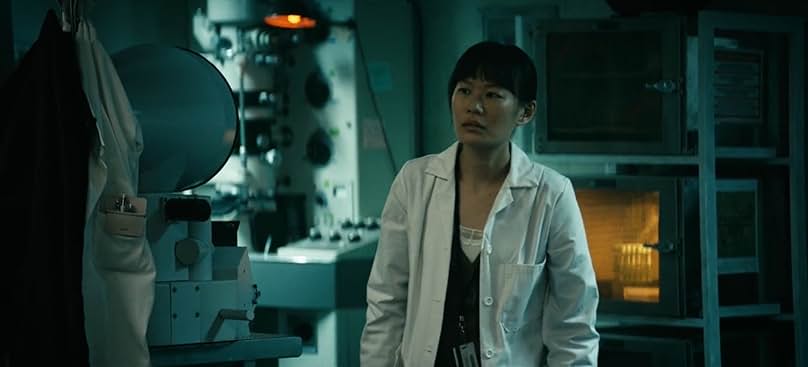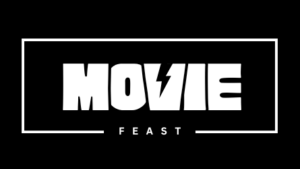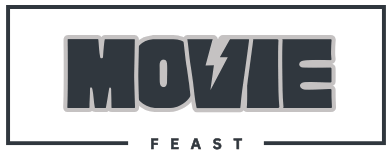The The Boys review reveals why this 2019 Amazon Prime series delivers genuine shock and emotional complexity. Eric Kripke’s masterful development transforms familiar superhero territory into something genuinely subversive and profoundly human.
What happens when you combine absolute power with complete moral corruption in the hands of corporate-controlled superheroes? You get superhero deconstruction perfection. The Boys (2019), created by Eric Kripke, stands as one of the most compelling anti-superhero dramas in recent streaming history. This intense series follows a group of vigilantes determined to take down corrupt superheroes who abuse their powers for personal gain and corporate profit. While the show operates on familiar vigilante territory, it succeeds because it never exploits its premise—every moment of violence and character development is handled with complete emotional authenticity.

Synopsis
When A/V salesman Hughie Campbell’s girlfriend is accidentally killed by the speedster superhero A-Train, his world is shattered. Approached by Billy Butcher, a mysterious vigilante with his own vendetta against superheroes, Hughie joins a ragtag group known as The Boys who are dedicated to exposing and stopping corrupt Supes. The series follows their dangerous mission to take down The Seven, a corporate-sponsored superhero team led by the psychopathic Homelander.
With Vought International controlling the superhero narrative and covering up their crimes, The Boys must navigate a world where the supposed protectors are actually the greatest threats. The series follows Hughie’s transformation from ordinary civilian to hardened vigilante, while exploring the personal costs of fighting an enemy that seems impossible to defeat.

Plot & Themes
The Boys operates on a devastatingly complex premise: sometimes the most dangerous villains wear the costumes of heroes. The superhero setting serves as both entertainment framework and sharp commentary on corporate power, celebrity culture, and the corruption that comes with unchecked authority.
The series’ genius lies in its careful balance between satirical elements and genuine character development. When the characters face impossible moral choices while fighting superpowered enemies, the show never treats their internal struggles as secondary to the spectacle. These moments work because Kripke understands that true impact comes from emotional investment in the characters’ impossible situation.
Thematically, the series explores how power corrupts absolutely and how ordinary people can find extraordinary courage when confronted with systematic evil. The Boys’ journey isn’t just about stopping bad superheroes—it’s about discovering that sometimes doing the right thing requires becoming something you never wanted to be.

Cinematography & Visuals
The cinematography captures the grotesque beauty of superhero violence with visual techniques that serve both the satirical and horror elements perfectly. The visual style emphasizes the contrast between the polished public image of The Seven and the brutal reality of their actions, using slick production values and shocking practical effects to create mounting revulsion.
The series excels in building tension through visual storytelling. The sequences showing superhero brutality and corporate manipulation demonstrate excellent use of both intimate character moments and spectacular action sequences. The camera work holds on meaningful moments of horror and determination just long enough to create genuine emotional investment.
Violence details reward careful viewing. During confrontation sequences, attentive viewers will notice how the characters’ growing desperation and moral compromise is reflected in their increasingly brutal tactics and decision-making processes.

Acting & Characters
Karl Urban delivers a compelling performance as Billy Butcher, anchoring the ensemble with his portrayal of a man consumed by vengeance finding unexpected family bonds. His character arc from single-minded killer to reluctant leader feels authentic and earned rather than forced.
Jack Quaid provides excellent support as Hughie Campbell, bringing both vulnerability and growing steel to his role. His chemistry with Urban creates a believable mentor-student relationship that grounds the extreme elements in genuine human connection.
Antony Starr rounds out the core with a performance that balances superheroic charisma with terrifying psychopathy. His scenes as Homelander during the most disturbing moments demonstrate genuine menace while maintaining character complexity.
The supporting cast, including Erin Moriarty, Jessie T. Usher, and the entire ensemble, brings depth and authenticity without falling into caricature, creating believable people trapped in an impossible system.
Direction & Screenplay
Eric Kripke’s development maintains perfect tension throughout the series’ runtime. Coming from his experience with genre television, Kripke understood that superhero deconstructions require careful pacing that builds horror without sacrificing character development. Every revelation and action sequence is given space to resonate emotionally.
The screenplay layers tension at multiple levels:
- Character development that explores trauma and corruption authentically
- Superhero elements that feel both spectacular and terrifying
- Political components that build naturally from corporate power structures
- Satirical beats that never feel forced or superficial
The script’s structure follows genre conventions while subverting them through genuine character growth. This creates familiarity that makes the unexpected moments of brutality and humanity land with greater impact.
Sound & Music
The series’ score perfectly balances heroic themes with underlying dread to create an audio landscape that mirrors the characters’ moral journey. The music enhances rather than overwhelms the natural horror of corrupted heroism.
Sound design plays a crucial role in building tension. The way superhero violence sounds visceral and wrong, and how corporate presentations contrast with brutal reality, creates an immersive experience that places viewers directly into the characters’ nightmarish world.
The use of silence deserves particular recognition. Key moments of moral choice and personal revelation are allowed to breathe without musical manipulation, trusting audiences to connect with the characters’ emotional reality through performance alone.
Conclusion & Verdict
The Boys succeeds because it treats its satirical premise with intelligence and respect for both the superhero genre and the audience’s capacity for complex moral questions. Every element—from performance to cinematography to sound design—works in service of both entertainment and social commentary without sacrificing either.
Strengths:
- Exceptional ensemble cast that creates believable moral complexity under impossible pressure
- Authentic genre deconstruction that feels researched and respectful to source material
- Excellent pacing that builds horror while maintaining character focus
- Thoughtful exploration of power and corruption through action rather than exposition
Minor Weaknesses:
- Some violence may feel excessive for viewers seeking lighter superhero content
- Occasional pacing issues in character development slow main plot momentum briefly
This series remains essential viewing for mature audiences and anyone who appreciates character-driven genre deconstruction. The Boys works for viewers who enjoyed Watchmen, The Umbrella Academy, or Preacher.
Rating: 9.0/10
Creator: Eric Kripke
TV Rating: TV-MA (for strong bloody violence, language throughout, sexual content and graphic nudity)
Starring: Karl Urban, Jack Quaid, Antony Starr, Erin Moriarty
For more superhero reviews, check out our analysis of other Amazon Prime original series. You can also explore the series’ production details at the Internet Movie Database.


